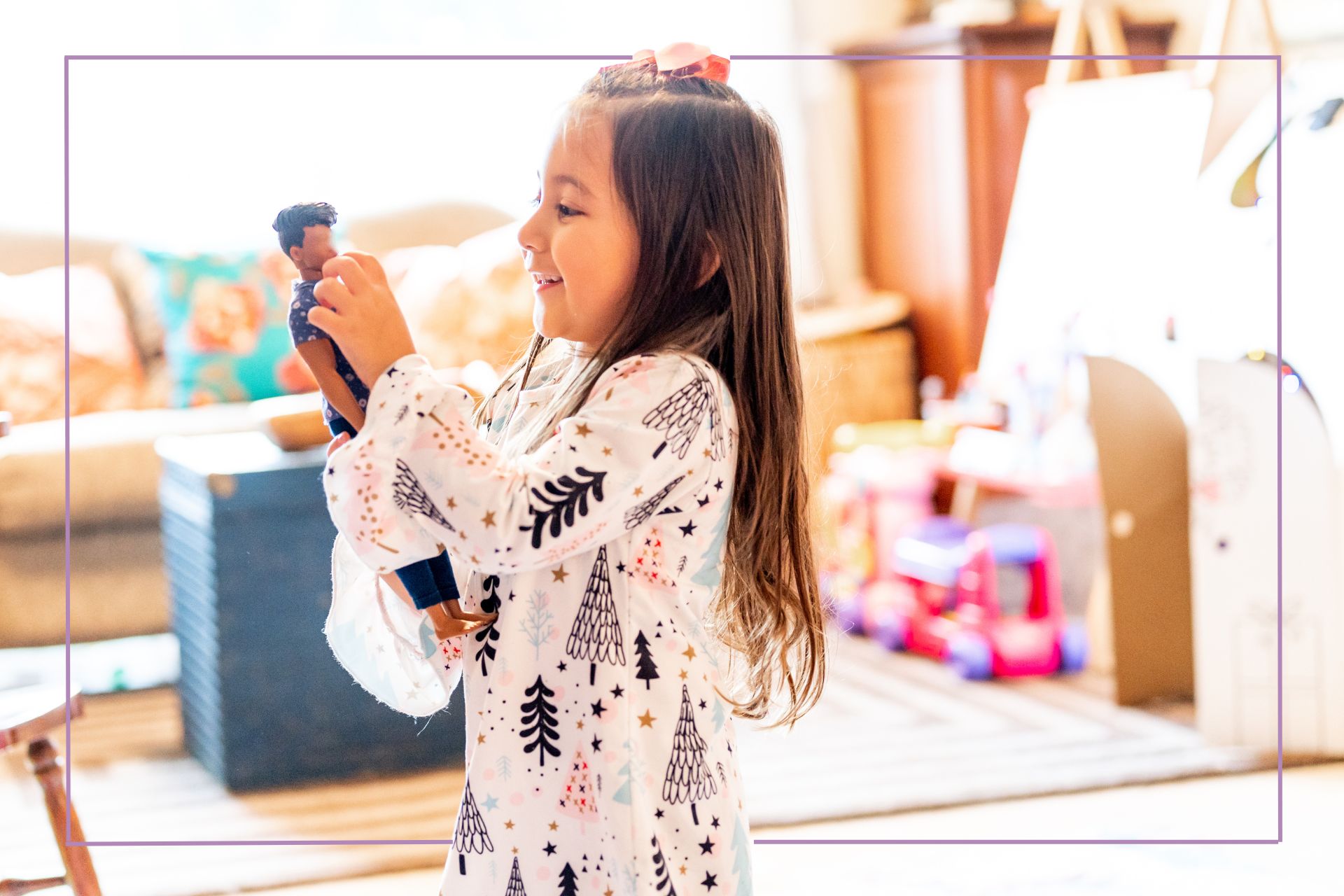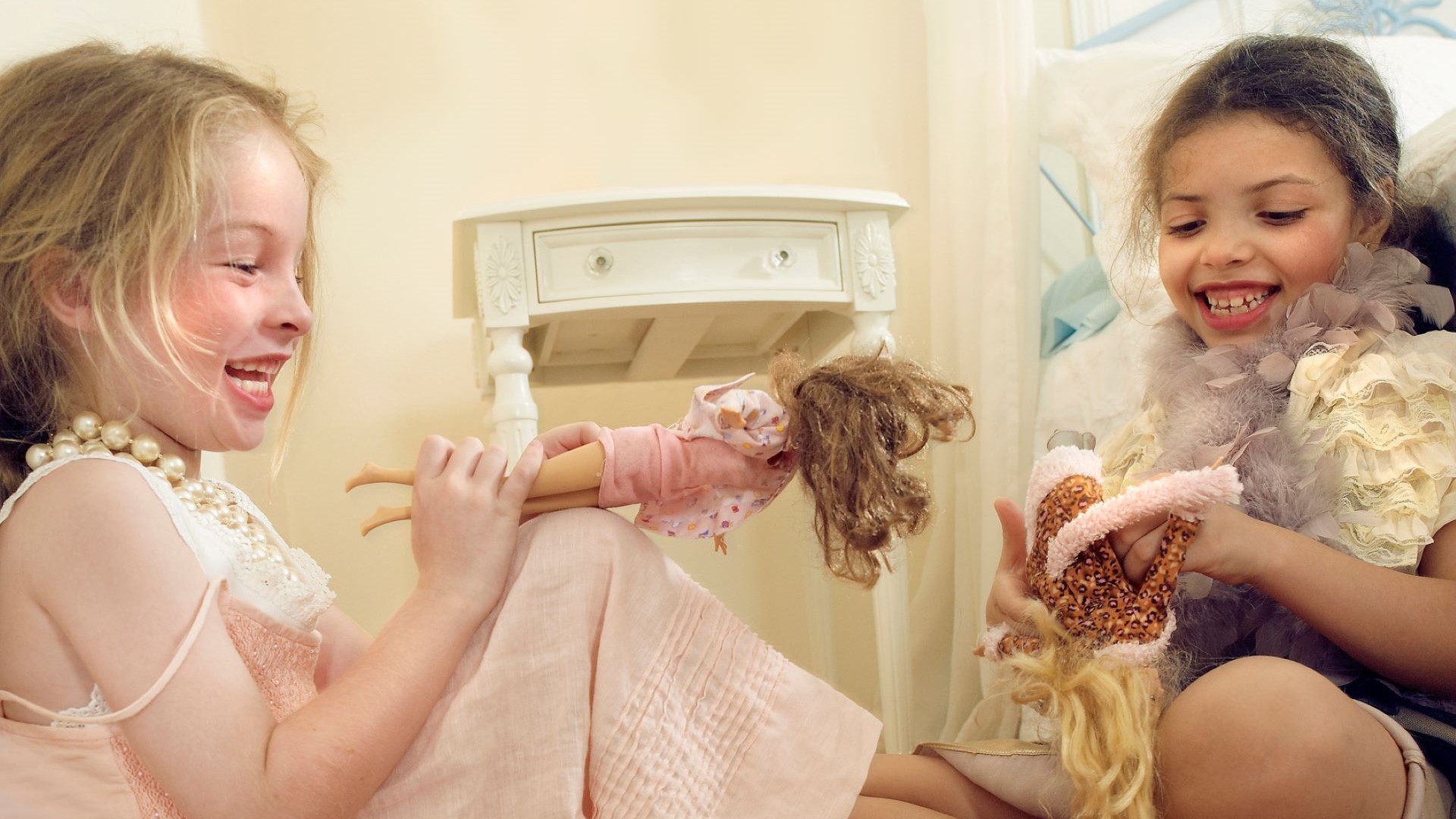How to play with Barbie dolls: 6 ways to use the iconic doll as a positive role model at home
If you have a little one who loves to play with Barbie, there are lots of positive ways in which you can encourage them to play in a way that helps their development and self-esteem. We’ll show you how.

Barbie, the iconic fashion doll launched by Mattel in 1959, has long been a beloved toy for generations of children. However, her exaggerated proportions and glamorous lifestyle have sparked plenty of debate over her influence on young girls.
Barbie dolls have been praised for promoting imaginative play and creativity. Through role-playing, children can explore different professions and relationships, encouraging cognitive and social development. Greta Gerwig’s recent box office blockbuster Barbie also shifted the needle and reinvented Barbie as a victim of patriarchy and a feminist hero and role model, sending Barbie and Ken baby names soaring. In recent years as part of the evolution of Barbie, Mattel has been creating Barbies that 'represent inclusivity and diversity' and using real-life inspirational women as role models for Barbie.
Critics of Barbie say she negatively impacts girls' self-esteem and body image perceptions. With her unrealistic physical features, young girls may try to copy the doll's appearance, leading to dissatisfaction and even body dysmorphia. Others say her traditional roles, such as fashionista or princess, reinforce gender stereotypes and limit girls' aspirations.
We’ve got 6 ideas on how to play with Barbie in a way that’s positive and inspiring so you can feel zero guilt for letting your little one indulge their love of this iconic doll. Plus, get tips on what to do if you hate playing with your kids.
How to play with Barbie - 6 ways to help your child play with Barbie dolls
Looking for ways to let your child enjoy playing with Barbie dolls without any guilt? You're not alone! Many parents want their kids to have fun without worrying about stereotypes or body image issues. Luckily, there are plenty of ways to make Barbie playtime worry-free and full of creativity. Let's explore some guilt-free strategies for embracing Barbie play with your child.

- Create a storyline: Encourage your child to create storylines and scenarios for their Barbie dolls. This could involve role-playing different professions, going on adventures or exploring events such as going to the dentist or first day at school. This will help stimulate your little one’s creativity and social skills and build their confidence when it comes to their own experiences.
- Enjoy the dressing-up part: Even if you’re not that into fashion, all Barbie fans love dressing their doll up, choosing outfits and accessories. Your kid can explore their sense of style and creativity by mixing and matching styles, patterns and colours. Dressing Barbie will also help their fine motor skills and hand-eye coordination as they fasten those tiny dresses and accessories.
- Get creative with a bit of DIY: Encourage your child to create accessories for their Barbie dolls, such as furniture, cars, or even clothes. Glueing extra glitter to a dress or adding a little of mum’s blusher to Barbie’s cheeks counts too! Your child will love bending the rules around playing with Barbie and enjoy the creativity that a little craft offers.
- Have a Barbie playdate: Inviting another child to bring their Barbie dolls is a great way to encourage collaboration and cooperation. The great thing about Barbie is that no one has to take turns and no one has to ‘win’, so it’s a positive and relaxing way for friendships to bond and blossom.
- Make it educational: You can even use Barbie dolls for educational play by incorporating themes like maths, science, or history into the play. For example, does Barbie float in water? How many dresses does Barbie have and what if you took away half of her dresses? Could Barbie be a famous Queen from history and what would that look and sound like? Your imagination is the only limit here.
A post shared by AdventureBoyds (@adventureboyds)
A photo posted by on
What are the benefits of playing with Barbie?
Helps their social development - A recent study in Developmental Science found that children between the ages of 4 and 8 were more likely to talk about their feelings and thoughts when playing with dolls, especially when they were playing alone.
The researchers believe this is because doll play encourages children to consider different perspectives and points of view. As kids tell the story of their doll's actions and emotions, they practise important social and emotional skills.
Parenting advice, hot topics, best buys and family finance tips delivered straight to your inbox.
The study's findings suggest providing dolls and other open-ended toys can be a simple way for parents to support their child's emotional expression and social-emotional learning. Allowing children to play independently with dolls, as well as playing with them using the dolls, can help this along.
A post shared by Barbie (@barbie)
A photo posted by on
Inspires story-telling skills and boosts imagination - Playing with Barbie dolls can help kids use their imagination and be more creative. You’ll probably notice your child coming up with stories or pretending to be different characters while they play.
Storytelling is important for kids because it helps them learn new words, use their imagination, understand how things work, feel for others, think critically, and talk to people. It's not just fun; it helps them grow smarter, kinder, and better at talking to others.

Helps your child dream big and set goals - Latter-day generations of Barbie feature doctors, astronauts, scientists and STEM engineers. Mattel has also made an effort to represent real role models each International Women’s Day, such as actress Viola Davis, writer Maya Angelou, artist Frida Kahlo and NASA mathematician and physicist Katherine Johnson.
These aspiring role models can help your child set goals for themselves and dream big. After all, if Barbie can do it, they can too!
What if I hate playing with my kids?
It's completely okay to feel that way sometimes. Parenting is challenging and not everyone enjoys every aspect of it. However, it's important to find ways to engage with your kid that works for both of you. You don't have to force yourself to enjoy activities you dislike, but you can still find ways to connect with your kid and show them love and support. Just 10 minutes a day playing with a parent can boost a child's development.
When it comes to playing with Barbie, you might feel hesitant or uncomfortable, especially if you think the doll may have impacted your own self-esteem. But even if it's not your favourite activity, exploring the world of Barbie can be a meaningful way to bond with your child.
A post shared by Anne-Marie Øby (@mariethemaker)
A photo posted by on
Consider finding Barbie-related activities that you both enjoy or exploring new ways to play together. It could be something as simple as reading Barbie storybooks, creating elaborate Barbie fashion designs, or acting out silly stories with the dolls. The key is to keep an open mind and find ways to make the experience engaging for both you and your child.
The most important thing is to approach Barbie play, and parenting in general, with a sense of fun and an open mind. It's okay if you don't enjoy every aspect of it - the key is finding ways to engage that work for both you and your child. With a little creativity, you can discover the joy of playing with Barbie and nurture your little one’s development in the process.
For more ideas on how to inspire creativity, problem-solving and social development during play, check out our guides, from the 12 benefits of sensory play to birthday gift ideas that encourage imaginative play Plus, 40 amazing activities for rainy days indoors.
Joanne Lewsley is mum to a tween, and freelance copywriter and editor who creates parenting, health and lifestyle content for evidence-based websites, including BabyCentre, Live Science, Medical News Today and more.